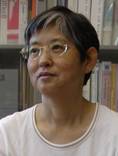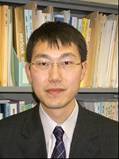- HOME
- About Asia LCS Project
Outline of the Project
1. Project title
Research project to Establish a Methodology to Evaluate Middle to Long
Term Environmental Policy Options toward Asian Low-Carbon Societies (Low-Carbon
Asia Research Project)
This project is supported by Environment and Technology Development Fund (S-6) of the Ministry of the Environment, Japan
2. Project Leader
- Mikiko Kainuma
- Fellow, Center for Social and Environmental Systems Research National Institute for Environmental Studies (NIES)
3. Project period
Five years (from FY2009 to FY2013)
4. Outline
The international community has recognized the need to reduce greenhouse gas (GHG) emissions by 50 percent by 2050. In order to achieve this target, it is imperative to develop the LCSs in Asia, as Asian countries account for more than half the global population and GHG emissions. It is thus necessary to identify development pathways to enable a shift to low-carbon emissions and low-resource consumption, while continuing to improving peoples' daily life through economic growth.
The S-6 Research Project aims to identify feasible and robust development pathways over the medium to long-term for the realization of a low-carbon society in Asian countries, at both the national and sub-national levels. It examines these? pathways from five perspectives: (1) integrated research on scenario development towards the realization of LCSs in Asia; (2) fundamental analytical research exploring the possibility of developing LCSs in Asia and how to evaluate progress; (3) research into the medium to long-term international and domestic institutional design options and their formative processes; (4) research to limit GHG emissions from the resource consumption associated with economic growth; and (5) research into concrete measures to establish a low-carbon transport system in Asia
In undertaking this research, the S-6 Research Project firstly summaries the knowledge of Asian development scenarios and emission reduction targets. Secondly, it develops and shares predicative scenarios, presenting an image of the future based on the shared predicative scenarios. In addition, it suggests the institutional arrangements, and resource circulation and low-carbon transport policies, which are necessary for the realization of the low-carbon scenarios, and analyses the feasibility of their implementation. Thirdly, it translates these outcomes into the parameters for integrated models, and performs quantitative analysis, confirming the consistency between categories. Finally, it develops and suggests the policy options which encourage Asian countries to create low-carbon societies from multilateral perspectives and the roadmaps to realize such societies.
The S-6 Research Project also conducts outreach activities to disseminate research outcomes to stakeholders with the capacity to influence the realization of low-carbon societies in Asia. These outreach activities include research symposiums, workshops, reports, policy dialogues and so on. They seek to integrate outcomes of the S-6 Research Project into development planning, and support stakeholders in implementing policies which promote low carbon societies in Asia.
5. Research Themes
| Theme |
|
Theme Leader |
theme 1
S-6-1 |
Scenario Development Study for Realizing Low Carbon
Society in Asia |
Toshihiko Masui
(National Institute for Environmental Studies) |
theme 3
S-6-3 |
Options and Processes for Establishing Medium to
Long Term International and Domestic Governance Architecture toward Low Carbon
Asia |
Norichika Kanie
(Tokyo Institute of Technology) |
theme 4
S-6-4 |
Study on Reduction of GHG Emission Associated with
Increasing Resource Consumption by Economic Development |
Yuichi Moriguchi
(The University of Tokyo) |
theme 5
S-6-5 |
Research on Realization of Measures for Low Carbon
Transport System in Asia |
Yoshitsugu Hayashi
(Nagoya University) |
Note: Theme 2 "Basic Analytic Research of Potential for Low Carbon
Development in Asia" was conducted from 2009 to 2011. The related research is continuously
conducted in theme 1 and theme 3.
6. Members
Members
7. Advisory Board
Advisory Board
| Prof. Ryokichi Hirono |
Professor Emeritus, Seikei University |
| Dr. Masahiro Kawai |
Dean & CEO, Asian Development Bank Institute (ADBI), |
| Prof. Li Zhidong |
Professor, Department of Management and Information System Science, Nagaoka University of Technology |
| Dr. Shuzo Nishioka |
Senior Research Advisor, Institute for Global Environmental Strategies (IGES) |
 |
Dr. Mikiko Kainuma- Project Leader -
Fellow, Center for Social and Environmental Systems Reseach, National Institute for Environmental Studies (NIES), Japan.
She has been engaging in the development of Asia-Pacific Integrated Model (AIM), which assesses policy options for stabilizing the global climate, particularly in the Asian-Pacific region, with the objectives of reducing greenhouse gas emissions and avoiding the impacts of climate change.
Dr. Kainuma received her B.S., M.S., and Ph.D. degrees in applied mathematics and physics from Kyoto University in Kyoto, Japan.
She is a Lead Author of Intergovernmental Panel on Climate Change (IPCC) Fourth and Fifth Assessment Report (Working Group III: Mitigation of Climate Change).
|
 |
Dr. Junichi Fujino- Project Manager -
Ph.D of Engineering.
Senior Researcher, Sustainable Social Systems Section, Center for Social and Environmental Sysytems Research, NIES, Japan.
Visiting Associate Professor, Japan Advanced Institute of Science and Technology (JAIST)
Adjunct instructor, Tokyo University of Science
2000 Graduated Tokyo Univ. Energy and Environment system Engineering, Energy, Economics, Environment Model Analysis.
2000-Joining AIM team.
2004-Scenario Team member and Manager, ''Low Carbon Japan 2050''
|



